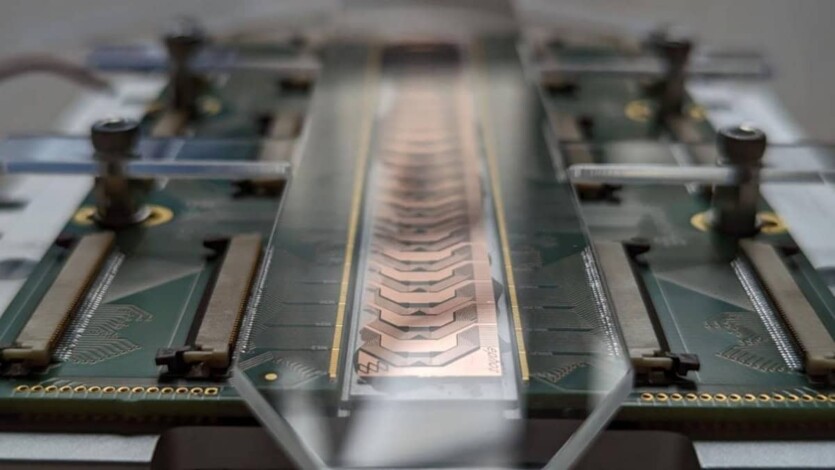
A collaboration of scientists from Italy, Germany, and France is working to create quantum computer, which will use glass photonic chips.
Despite the fact that quantum computers promise to be much more powerful than traditional computers, there are many problems on the way to realizing such practical and efficient devices. The initiative, led by the Politecnico di Milano, brings together a team of scientists from leading research centers and small and medium-sized enterprises in France, Italy and Germany to improve quantum characteristics, using the properties of glass.
Researchers are using glass chips developed by Ephos to create a photonic quantum computer. These chips process and transmit information using light. They support up to 200 reconfigurable optical modes, which makes it possible to dynamically adjust the movement of light in the chip.
«Light-transmitting materials should be used. This is a challenging task, as it is necessary to limit the light but avoid absorbing it If light is absorbed, it cannot propagate», — explains Julia Acconcha of He graduated from the Polytechnic University of Milan.
Scientists want to generate individual photons and direct them through glass circuits, which in the future may allow solving such pressing problems as creating more efficient batteries, new drugs, and unlocking the secrets of the universe. The technology of laser printing on glass is also promising In the process, light particles are generated, which are transmitted to this chip via fiber optics. Everything is made of glass, so the risk of photon deflection along the way is minimal.
Currently, the German company Pixel Photonics is improving ultra-sensitive detectors to register every photon. At the same time, Schott AG produces and supplies high-quality glass substrates.
The team of researchers led by Giulia Acconci is developing the high-performance electronics that will control the system. At the same time, specialists in Experimental Quantum Optics at the University of La Sapienza in Rome are engaged in the generation of single photons.
The French Single Fund is developing open source software for quantum computing. Teams from the National Center for Scientific Research and the University of Montpellier are modeling advanced energy storage solutions that are an important foundation for future applications based on quantum technologies.
QLASS researchers share a common goal: to create a working photonic quantum device at the University of La Sapienza by 2026. Upon completion of the project, software developed at the University of Montpellier and the Single Fund will allow the device to be tested.
The first task of the new quantum computer will be to develop more advanced lithium-ion batteries. By using variational quantum algorithms — special instructions that help quantum machines solve problems more efficiently — quantum computing can model battery chemistry, speed up the search for new materials, and even improve condition monitoring.
While scientists understand the laws that govern atoms and compounds, tracking their interactions in real time is incredibly complex and beyond the capabilities of today’s silicon computers. Researchers expect quantum computers to help speed up the development of new materials for batteries and medicines.
The results of the study are published in the journal Horizon Magazine
Source: ZMEScience

Spelling error report
The following text will be sent to our editors: